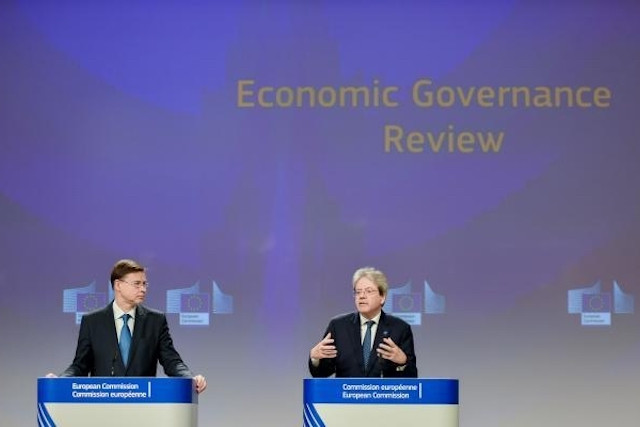The debate comes at a time when the EC is reviewing the framework, coinciding with a new political cycle, and is a time for the body to assess in particular the six-pack and two-pack reforms, the first of which went into force in 2011 and 2013, respectively, adjustments made following the 2008 financial crisis.
“We learned some lessons the hard way and adjusted our rules according,” said executive vice president Valdis Dombrovskis. “We learned, for example, that sound fiscal policy in good economic times is important to create buffers…we learned that public debt matters, and beyond fiscal policies economic imbalances are also relevant.”
Insufficient traction
According to Dombrovskis, there are plenty of positives, including the fact that public finances have improved and public debt has declined. In the last 10 years, there have been strides on reducing deficits and a better coordination on fiscal policies, he added.
While corrective tools have also aided in bringing deficits below 3% in most member states, most of the high-debt countries are still away from their medium-term budgetary objectives, and there has been insufficient use of more positive economic conditions in the past as a means for building buffers or reduce debt.
Nevertheless, although Europe’s economy has witnessed seven years of consecutive growth--a trend expected to continue this year, albeit with deceleration--this coincides with many challenges. Among those are the EU’s goal to be a climate-neutral economy by 2050, fit for the digital era, as well as how to deal with the ageing population. There’s also what Dombrovskis calls “reform fatigue” and the fact that “rules have become overly complex [and] hard to explain”. Part of the goal of the public debate, therefore, will be to strengthen some of these key areas.
“Not a technical exercise”
Commissioner for economy and Italy’s former prime minister, Paolo Gentiloni, added that while there was indeed a turnaround since 10 years ago, “the keyword for the situation we have now is uncertainty.” It’s unclear, for example, how Brexit, trade, even the Coronavirus could impact the European economy.
But there’s also uncertainty surrounding “the increasing constraints faced by the ECB”, as well as how the EU will tackle macroeconomic imbalances, encourage reform and investment, avoid procyclical policies, and to simplify and make the overall framework more transparent.
He hopes the debate will yield a “results-oriented discussion” and “common vision”, adding: “I think we need…ambition [and] an extraordinary effort to bridge differences… it’s not a technical exercise, it’s something dealing with jobs, well-being, protection of our communities.”
The public debate, which will be conducted through stakeholder meetings alongside workshops and an online platform, is expected to be concluded by end-2020.
